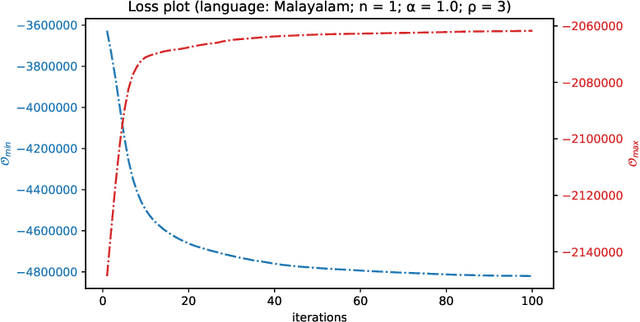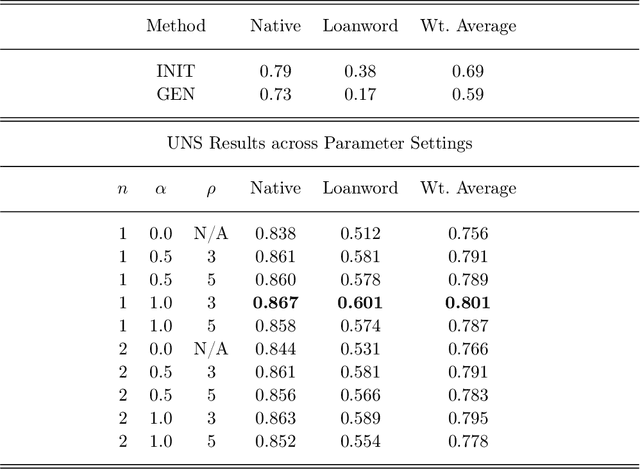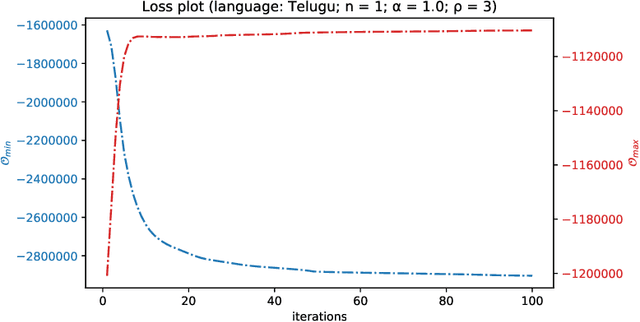Unsupervised Separation of Native and Loanwords for Malayalam and Telugu
Paper and Code
Feb 12, 2020



Quite often, words from one language are adopted within a different language without translation; these words appear in transliterated form in text written in the latter language. This phenomenon is particularly widespread within Indian languages where many words are loaned from English. In this paper, we address the task of identifying loanwords automatically and in an unsupervised manner, from large datasets of words from agglutinative Dravidian languages. We target two specific languages from the Dravidian family, viz., Malayalam and Telugu. Based on familiarity with the languages, we outline an observation that native words in both these languages tend to be characterized by a much more versatile stem - stem being a shorthand to denote the subword sequence formed by the first few characters of the word - than words that are loaned from other languages. We harness this observation to build an objective function and an iterative optimization formulation to optimize for it, yielding a scoring of each word's nativeness in the process. Through an extensive empirical analysis over real-world datasets from both Malayalam and Telugu, we illustrate the effectiveness of our method in quantifying nativeness effectively over available baselines for the task.
 Add to Chrome
Add to Chrome Add to Firefox
Add to Firefox Add to Edge
Add to Edge